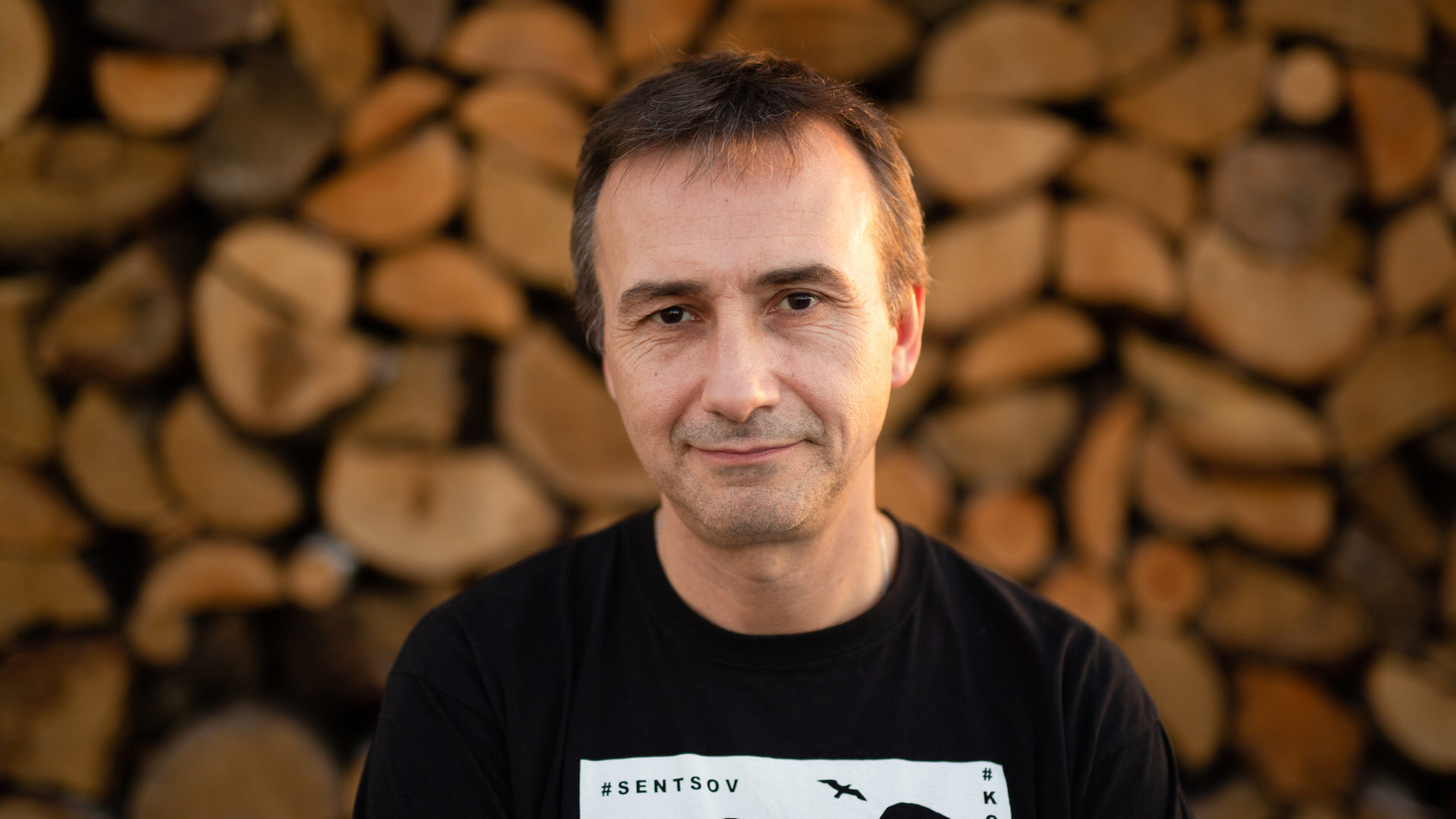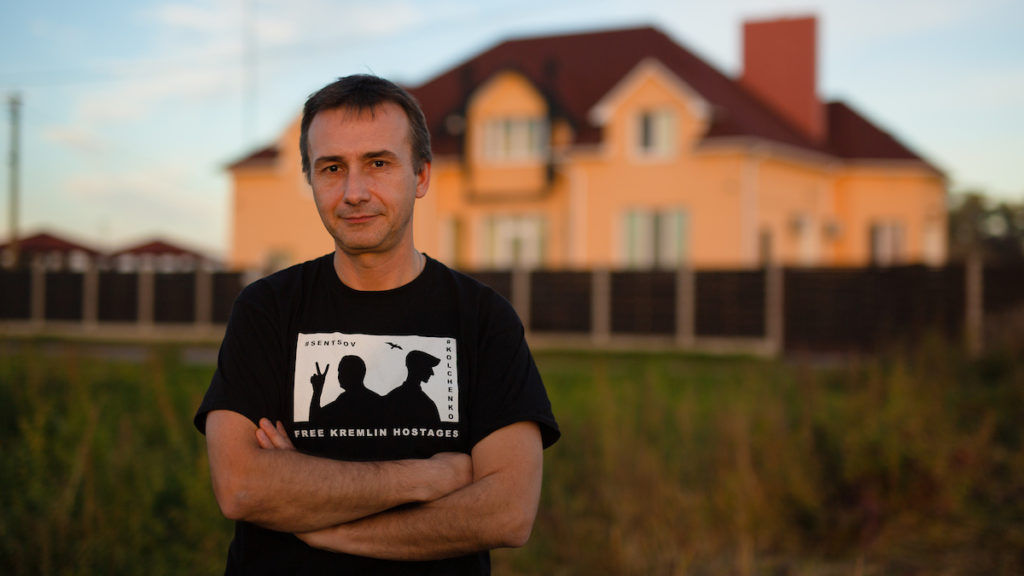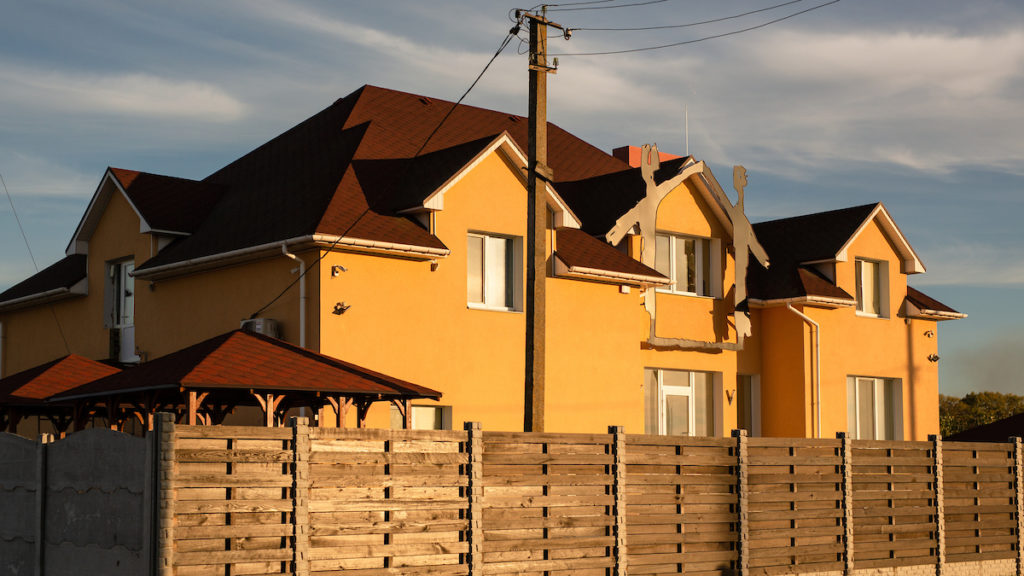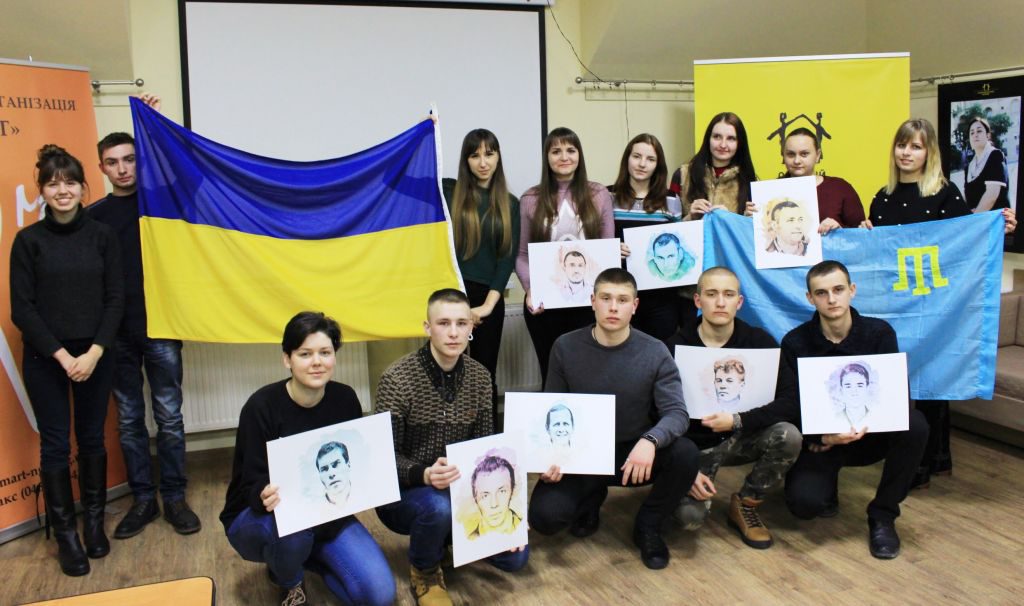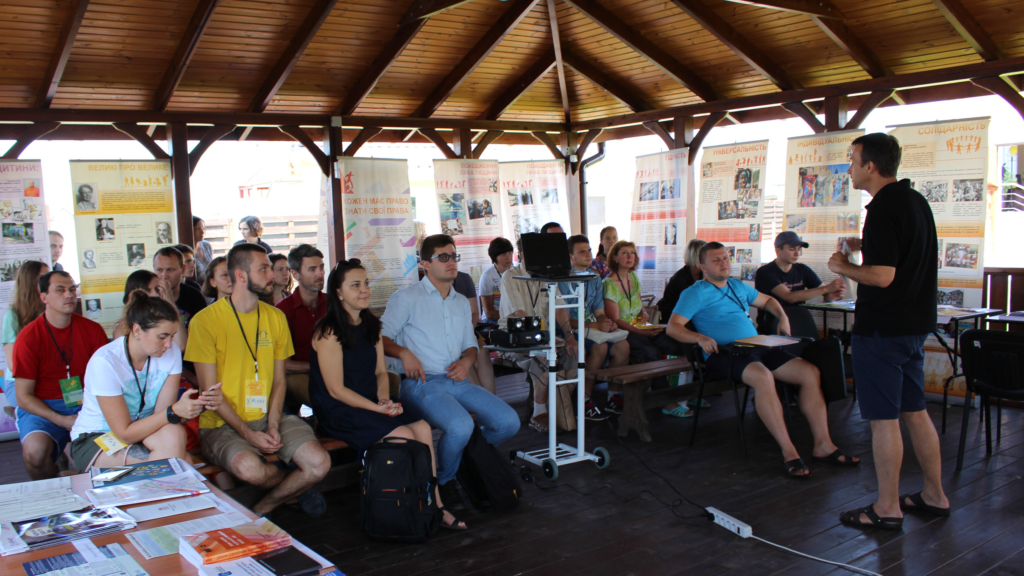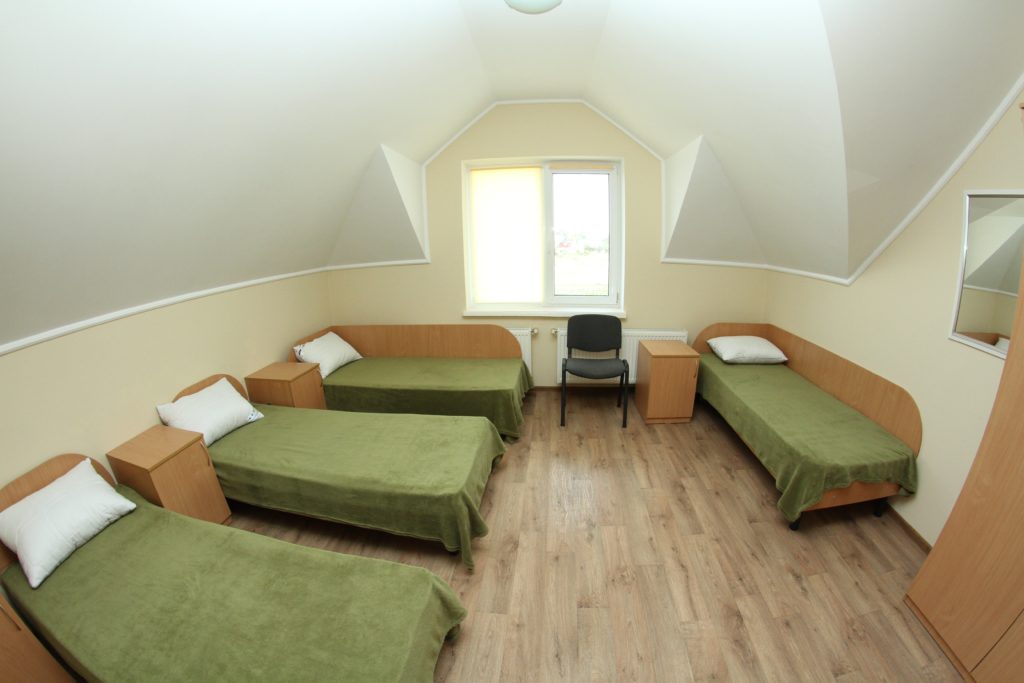Serhiy Burov is a Ukrainian advisor and teacher of human rights and civic education. His life and work have been led by his strong passion for and belief in human rights education. He is the director of Educational Human Rights House Chernihiv.
In this interview with HRHF, Burov explores his path into human rights education and discusses the origins of the House in Chernihiv. He talks of the issues around opening the House amidst the chaos and aftermath of Euromaidan, and on how the House continues to overcome human rights challenges.
“Some people understand and respect human rights activities and get involved themselves. The other section of society sees us as foreign agents…”
Burov is only too aware of some of the challenges in promoting human rights in Ukraine, but he is also sure of the opportunity to break through and improve lives with education in human rights. He heralds the importance of the long-lasting effects brought about by education.
“When we work with young people, they are still searching for their paths in life. We suggest human rights to them as a sphere of self-fulfilment. Later, when young people better understand what they want to do in life, they can apply this knowledge in different areas of their lives, both professionally and in their civic activities.
We want schools to become a place where human rights are respected. We want them to change because schools shape the personality of people, with all the values that stay with them for the rest of their lives.”
Burov graduated as a teacher of history and began working in a high school in 1997. His experiences shaped his passion for education in human rights.
“Questions from the children pushed me: these children who were born after the fall of the Soviet Union, who didn’t even know what it was like to live during that time. Students asked many questions. I encouraged these discussions.”
To find answers for the questions from his students, Burov began to research key issues and discovered organisations such as Amnesty International and Ukrainian human rights groups in Kharkiv and Vinnytsia. He started teaching his students civic education, law, history, and current events, and engaging them in assignments such as comparing the Ukrainian constitution on paper against the reality in the country.
“Usually subjects like this are only taught for one hour a week, but the students had a lot of questions, so I offered the ones who were very interested to have an additional class. We talked about school governance and even created a youth group as part of this: ‘Youth human rights defenders group’.”
As a teacher, his students energised his interest in human rights that was first sparked when he himself was a teenager – during his conscription into the military of the Soviet Union from 1988-1990.
“In the army, I went to places in the former Soviet Union where there were troubles. I was in Uzbekistan, Baku, Karabakh; these were the years before the fall of the Soviet Union. As a teenager, it was difficult to judge this situation, and before the army I didn’t even think about the question of human rights.”
I saw first-hand the effects of conflict – I was standing on blocks, talking to people, taking photographs of destroyed houses, witnessing killed Meskhetian Turks in Uzbekistan. At the age of 18, it was a shock.
Burov refers to the years in the army as an important milestone for his subsequent human rights activism.
A House for human rights education
“Human rights should be the minimum level, the floor – you can’t fall below it. Each society is free in choosing its own path of development, some countries have good roads, some have bad roads… but all in countries there should be a mandatory order that people can feel safe in terms of human rights and dignity.”
The story of the establishment of the House in Chernihiv is tightly bound to the establishment of the Belarusian Human Rights House. In 2006, the founding members of the Barys Zvoskau Belarusian Human Rights House were aiming to set up a Human Rights House outside of Belarus, due to the impossibility of operating within the country.
“My friend Barys Zvoskau was in the process of creating a House, and was unable to set up in Minsk. There were three options – Chernihiv, Kiev, and Vilnius – and in the end the House was established in Vilnius.”
During this process, Burov proposed to Human Rights House Foundation almost jokingly: “let’s set up a House in Ukraine”.
“We were sincere, but it was a very unrealistic idea at the time. Our colleagues from Norway agreed that it wasn’t possible, but the attitude was ‘why not?’ and they continued to cooperate. Later HRHF decided to support the creation of a House in Ukraine.”
It would take another eight years before Educational Human Rights House Chernihiv was established.
“We faced the usual challenges in establishing the House– a lot of work, and a lot of new work in areas we had limited expertise such as technical issues, construction work, and land issues… but with the help of the people who became part of our team, we did it.”
Burov and his colleagues Volodymyr Yavorskyy and Roman Romanov began to discuss the need for a Ukraine-wide human rights education programme. A year later, MART and Ukrainian Helsinki Human Rights Union began the practical implementation of these plans with support from Norwegian Helsinki Committee and International Renaissance Foundation.
“Our small team kept growing, with Oleksandr Voitenko and Mariya Yasenovska joining to contribute to the training of trainers on human rights. Konstantin Reutskyy joined later, representing Human Rights Centre Postup. This was the team with which we started working.”
The programme and the people behind it became the basis to establish the House, and were a deciding factor in the House being established in Chernihiv rather than in Kyiv.
Burov was involved in two of these organisations – the Ukrainian Helsinki Human Rights Union and MART– and was a key figure in the establishment of the House.
“Most Ukrainian events and international human rights events happen here – so the house is like a hub for the whole country… We have people coming from different regions in the country interested in creating Human Rights Houses in the south, or in the west… We always explain that we are ready to cooperate and to help them on their way, and that there are high standards to become a Human Rights House… We would like to develop a network of cooperation around the country.”
When establishing the House, the founders already had the idea that different regions of Ukraine could have different thematic Human Rights Houses based on the expertise in those regions. Crimea could have specialised in the area of multiculturalism, Western Ukraine in ecological problems, and eastern Ukraine as the country’s centre for strategic court cases.
Yet these ideas were soon complicated by Euromaidan and the events that followed.
Opening amidst the chaos and aftermath of Euromaidan
The establishment of the House took place during the chaos and the aftermath of Euromaidan, with the physical premises of the House purchased in January 2014. The months that followed saw the organisers of the human rights school adapt rapidly to changing human rights needs in Ukraine.
“Because of the conflict, today when we discuss human rights, the problems are quite different, it all changed almost overnight.”
When the conflict started, for many there was a shift in focus. We started discussing human rights during conflict, the norms of international humanitarian law, and to think how we cope under occupation. We focused on the need for monitoring in Crimea and about the problems of frontline territories.”
On 26 February 2018, Educational Human Rights House Chernihiv hosted an event on human rights in Crimea in connection with #26SOLIDARITY, a global campaign in support of Crimean political prisoners.
“There were many new issues arising concerning the victims of military activities, children in warzones… We could monitor this situation and make statements internationally.”
“On the back of this situation – new activists emerged, such as, for an example among many, former businessmen who used to focus exclusively on their work and private lives, and never thought they could be activists.”
When Euromaidan started, the founders of the House all worked individually. They contributed to the Euromaidan project and monitored it. In February 2014, when the process to open the House began, the members contacted young activists to tap into their activities.
“Many initiatives emerged around Euromaidan. Some people were providing medical services, or monitoring or streaming, while others were searching for those who were missing… But there was a lot of confusion among people, especially the youth as to what they could do to help and how they should behave in this situation. We thought people interested in human rights activities could be involved in our human rights school.”
The human rights school taught young activists effective things that they could do during Euromaidan, encouraging them to join the initiatives of the House founders and their partners.
This was the most difficult school for us: this is when the shootings began in Kyiv; people were being killed. Some of our colleagues left immediately for the capital, and of course, our young participants were also willing to go to, but the road was blocked.”
During the next human rights school in the summer of 2014, before the renovation of the House premises, participants lived in tents with classes taking place in unrenovated rooms.
“This was also quite challenging – the focus was on the annexation of Crimea and the outburst of military activities in Eastern Ukraine. In this human rights school, we invited those directly affected by these situations. We discussed not only human rights, but also what we can do in these situations.
Education, advocacy, and protection
The primary focuses of the House are human rights education, advocacy, and protection. Through its work, the House attempts to reach out to youth activists, teachers, and schools, and to lawyers, judges and the legal system in the country.
“We have many target audiences, but our main point is education. The value of the House is that the members are very different; these organisations target different people – giving us an opportunity to work with many different audiences in parallel.
The House’s educational programmes are developed based on international human rights standards, and the national implementation of these standards is at the heart of the work of the House.
“With judges and lawyers, we see an issue where courts rarely refer to the case law of the European Court of Human Rights, so this is our entry point. With this audience, we don’t start with human rights philosophy; they are interested in practical things like decisions of international human rights bodies. Maybe later we can open them up to the philosophy.”
The House is part of the International Law in Advocacy (ILIA) programme by Human Rights Houses, which aims to extend the knowledge and experience of lawyers in international human rights standards and protection.
“A key principle for us is if you teach you should first know how to do something. We can’t know everything ourselves, so we invite experts. Before going to monitor the courts and other human rights activities, you have to learn how to do these things.”
Serhiy Burov leads a discussion as a part of Educational Human Rights Fest 2018
In 2017, the House began to host the annual human rights education festival, which has become one of the largest human rights festivals in Ukraine. The second festival, held in 2018, took place over nine days and hosted more than 50 speakers and around 150 participants. It included lectures, discussions, cinema shows, master classes, musical evenings, and excursion tours around Chernihiv city, as well as swimming in the lake, yoga, and friendly evenings near the fireplace.
“I consider the festival one of our biggest successes. We are constantly developing it. It might not be as results-originated as other projects, but it’s a great platform to meet other defenders, to share experiences and practices at work. Very often during the nine days of the festival, new ideas are being created, new projects are starting that actually change the country.”
Sheltering defenders at risk
“When you see someone with a family, and they only have 20 minutes to leave their country… it is so important to help this person in time. During these first days, you just have to save this person – a more complete plan can come later.”
One of several sleeping rooms in Educational Human Rights House Chernihiv
Alongside the Belarusian House and Human Rights House Tbilisi, the House in Chernihiv engages in protection work with Human Rights House Foundation, and functions as a shelter protecting human rights defenders from different countries and situations.
In 2018, the House sheltered people from Afghanistan, Azerbaijan, and Uzbekistan. It also helped people fleeing Crimea and the conflict zone in eastern Ukraine.
“With the people from Crimea and eastern Ukraine – we just helped our friends; they didn’t stay for long in the House. Some people stayed for weeks, mostly we only offered real shelter for those from Azerbaijan, not from military conflict, but from the totalitarian regime endangering active people in the country.”
“These people are under quite stressful mental situations. They might have left their families or other loved ones behind. Some financial and psychological support is needed – sometimes it is just about being someone with whom they can talk normally.”
“We are more of a transit point. Ukraine is unfortunately not yet a good place to host people fleeing. We are a place where we can offer a kind of first aid for these people.”
Staying busy and feeling useful is something else that people can need in these situations says Burov, who cites the example of two Azerbaijani journalists that stayed at the House for a short period.
“We invited them as experts for a workshop for Ukrainian journalists. This was interesting and gave a new perspective to our journalists, and it was important for the Azerbaijani journalists to come back to what they are used to. It also helped our journalists to better understand the situation in Azerbaijan.”
“We are involved in regional projects and partnerships because solidarity matters… The universal declaration of human rights: this is solidarity, people from different countries coming together and rejecting the wrongs happening in other parts of the world. We all live in different counties, but we can have similar problems or see good and bad practices repeating.
Burov mentions specifically the common history of at least 70 years that Ukraine shares with Belarus and Russia.
“We have similar problems, similar governments, as well as a similar set of values in our societies. This is why we can help each other.”
Overcoming challenges for human rights defenders in Ukraine
“We try to use human rights as a tool to change the attitudes in society… unfortunately we have a new trend where defenders can be assaulted by people close to the authorities, and the police are often unwilling to investigate, or they conduct very ineffective investigations.
Sometimes there are conflicts among activists. Again, this happens also in other countries, when activists are, for example, subject to smear campaigns. This is beneficial for authorities because they can divide the society, and people fight among themselves because of conflicting values. Some people can’t stand aside when they see minorities suffering, but assisting minorities often provokes a negative action from far-right actors.”
These challenges are also visible through the proposals of some members of parliament who want to restrict the activities of defenders – they try to label us as people serving foreign capital.”
Working to overcome these challenges, Educational Human Rights House Chernihiv is running programmes that aim to engage with authorities and support independent organisations working on human rights.
“Previously, we tried to partner with the government on the issue of human rights in schools. We called for a systematic approach to human rights but this failed, so we decided to have a parallel system. This system is a large effort including self-assessment of the general human rights environment in the school – where the school assesses whether they can be called a human rights zone.
“The House is developing a nationwide programme of human rights with the ministries of education and justice. The development of this programme is part of our national strategy. Also, we are cooperating with the office of the ombudsman on several issues – mainly the development of the national preventative mechanism.”
House members are also leaders in providing training to people independently monitoring prisons in Ukraine, and member MART has partnered with the House and the minister of justice to implement higher standards for the programme of the preventing juvenile crimes.
The member organisations also cooperate with government ministries regarding the conflict in the east – documenting and collecting evidence.
Reflecting, Burov remains optimistic.
“Certainly, the occupation of some of our territories and military actions are of key priority now… On one hand, they mobilised a part of our society; on the other hand, unfortunately, the state of war sometimes is used as a justification for many wrongdoings, but I am an optimist and believe that we have many good opportunities.”
Thumbnail photo: HRHF
NEWSLETTER FROM HUMAN RIGHTS HOUSES AND HRHF
This article was published as part of the March newsletter from the Human Rights Houses and HRHF.


